Enhancing basic and advanced life support skills among Yemen’s health workforce
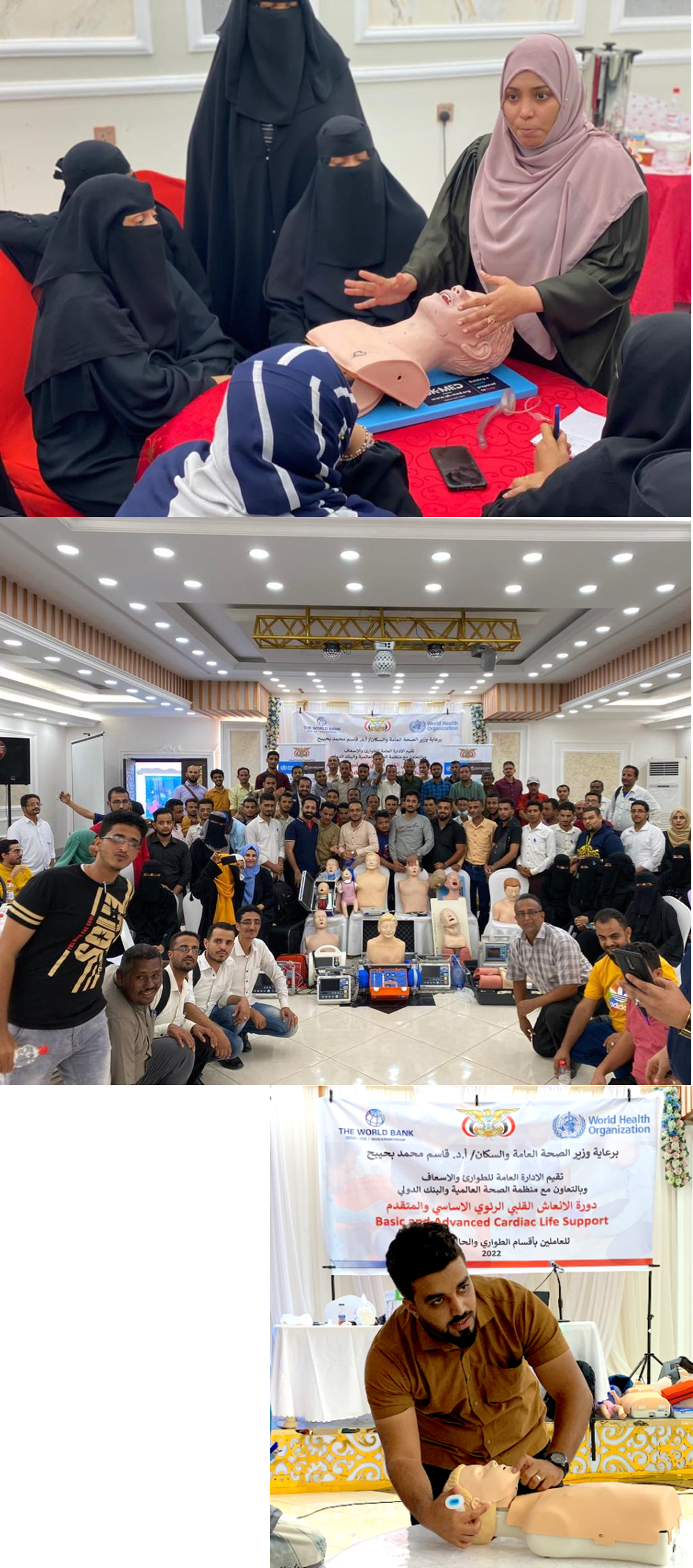
Aden and Sana’a, 22 November 2022 – The COVID-19 pandemic reaffirmed for the world the importance of health systems having strong intensive care capacities in place to save lives.
As part of building back better after the pandemic, WHO and the World Bank, through the Yemen COVID-19 Response Project (YCRP) have trained more than 1200 health workers in recent months to provide life-saving care to COVID-19 patients experiencing severe illness. The training will also help to build critical skills needed to save lives in emergencies.
Some efforts have been made to understand the gaps in emergency and ICU care capacities in Yemen. For example, a study published in 2022, surveyed 200 Yemeni nurses and identified that fewer than 41% had been trained in basic life support and around 75% could not recognize the correct chest compression rate. To address observed shortcomings, WHO launched a nationwide effort to dramatically improve knowledge of basic life support and advanced cardiac life support among health workers in the public sector.
Over the course of 3 months, 18 group training sessions were delivered in Sana’a and 4 week-long sessions in Aden. This resulted in training 230 doctors and 808 nurses in basic life support and advanced cardiac life support and 260 ambulance drivers in basic life support.
During delivery of the training, participation of female health workers was monitored and advocated for, with the result that by the fourth batch of trainees in Aden, female health workers accounted for 65% of participants. Overall female doctors and nurses accounted for 33% of the trainees. By location, female health workers accounted for 19% of participants in Sana’a and 43% in Aden. To improve on this in future, WHO is working with the authorities to reach 50% female participation in training with the World Bank’s support, and in Aden a focal point has been nominated to help in achieving this target.
In Sana’a, the average pre-test result was 44% and post-test was 80%. Interim results from Aden showed a pre-test average of 57% and post-test increasing to 88%. In feedback forms, 252 participants evaluated the training. Of them, 48% received BLS for the first time, 99% now feel confident to perform CPR and 100% are willing to share their knowledge with their colleagues.
The investments in basic and advanced life support training build on WHO’s 9-week national critical care training, which was also conducted under Yemen's COVID-19 Response Project, for 118 doctors and nurses across Yemen. The basic life support/advanced cardiac life support training is delivered by master trainers who are specialists in emergency and critical care, assisted by selected potential trainers from the national critical care training.
Going forward, the trainers are working on cascading BLS and ACLS skills to more health workers across Yemen’s 22 governorates. This work is planned to continue under the Emergency Human Capital Project (EHCP) with the World Bank’s support.
Learn more
Alkubati, S.A., McClean, C., Yu, R. et al. Basic life support knowledge in a war-torn country: a survey of nurses in Yemen. BMC Nurs 21, 141, 2022 https://bmcnurs.biomedcentral.com/articles/10.1186/s12912-022-00923-0
Related links
Trainees take immediate proactive steps to cascade life-saving skills
Texts from the field: life-saving impacts of basic and advanced life support training in Yemen
Trainees take immediate, proactive steps to cascade life-saving skills
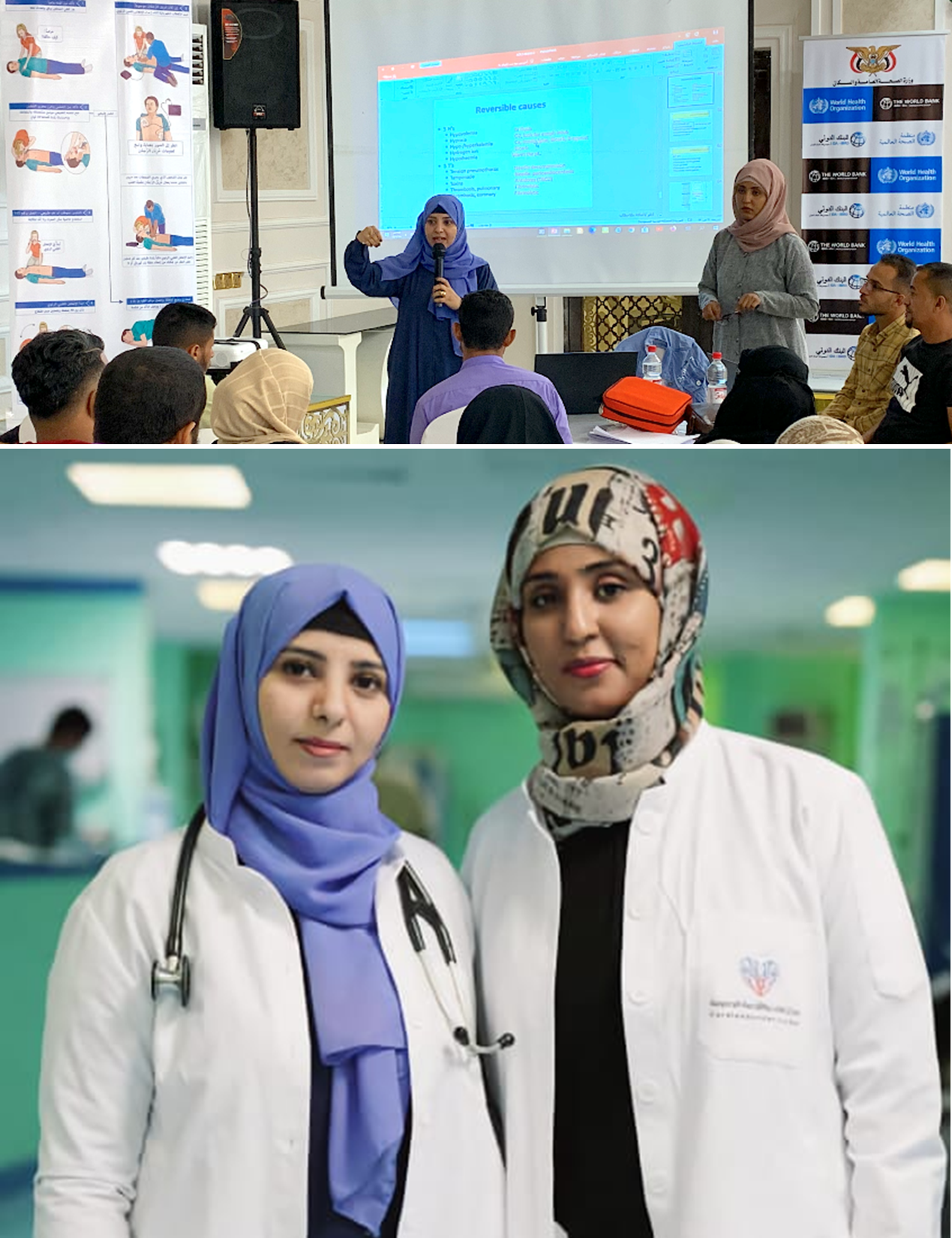
Taizz | Sayoun, 22 November 2022 – Participants from WHO’s recent basic and advanced life support trainings in Yemen are taking matters into their own hands to rollout these lifesaving skills to their peers. Among the more than 1200 health workers trained, below are some success stories of health workers playing critical roles in improving delivery of lifesaving care for the Yemeni people. The training was conducted with the World Bank’s support via the Yemen COVID-19 Response Project (YCRP).
Dr Raef is working in the Al-Jamohoury Hospital Cardiac Centre and is a teacher at Taizz Faculty of Medicine and Health Sciences. She successfully completed the 9-week national critical care training and recently got an opportunity to train in basic life support and advanced cardiac life support courses (for the first time), under the supervision of master trainers.
When Dr Raef and her colleague Dr Zahra returned to their governorate, Taizz, they were thinking about how to promote knowledge and skills for a long-term future and sustainability for the next generations. They came up with 4 ways forward:
They convinced the management of Taizz Faculty of Medicine to embed basic life support and advanced cardiac life support into the main curriculum of the ICU and anesthesia module.
Dr Zhara started teaching the theoretical part of basic life support and advanced cardiac life support in Taiz Faculty of Medicine.
Dr Raef delivers the practical part in Al-Jamohoury Hospital Taizz halls and cardiac-ICU for fifth-grade medical students with minimum available tools.
They keep communicating with Taizz governorate health office towards procuring more resources for an effective educational process.
Dr Nabil participated in the basic life support training of trainers in Aden. He passed the exam aligned with international standards to be a basic life support provider and instructor. Dr Nabil used his skills and knowledge to conduct a basic life support provider course at Sayoun University in Hadramaut Governorate targeting medical college students. In doing so, he complied with international standards as much as possible in a low-resource setting. Dr Nabil will have the chance to be a co-facilitator in WHO Yemen’s basic life support rollout plan.
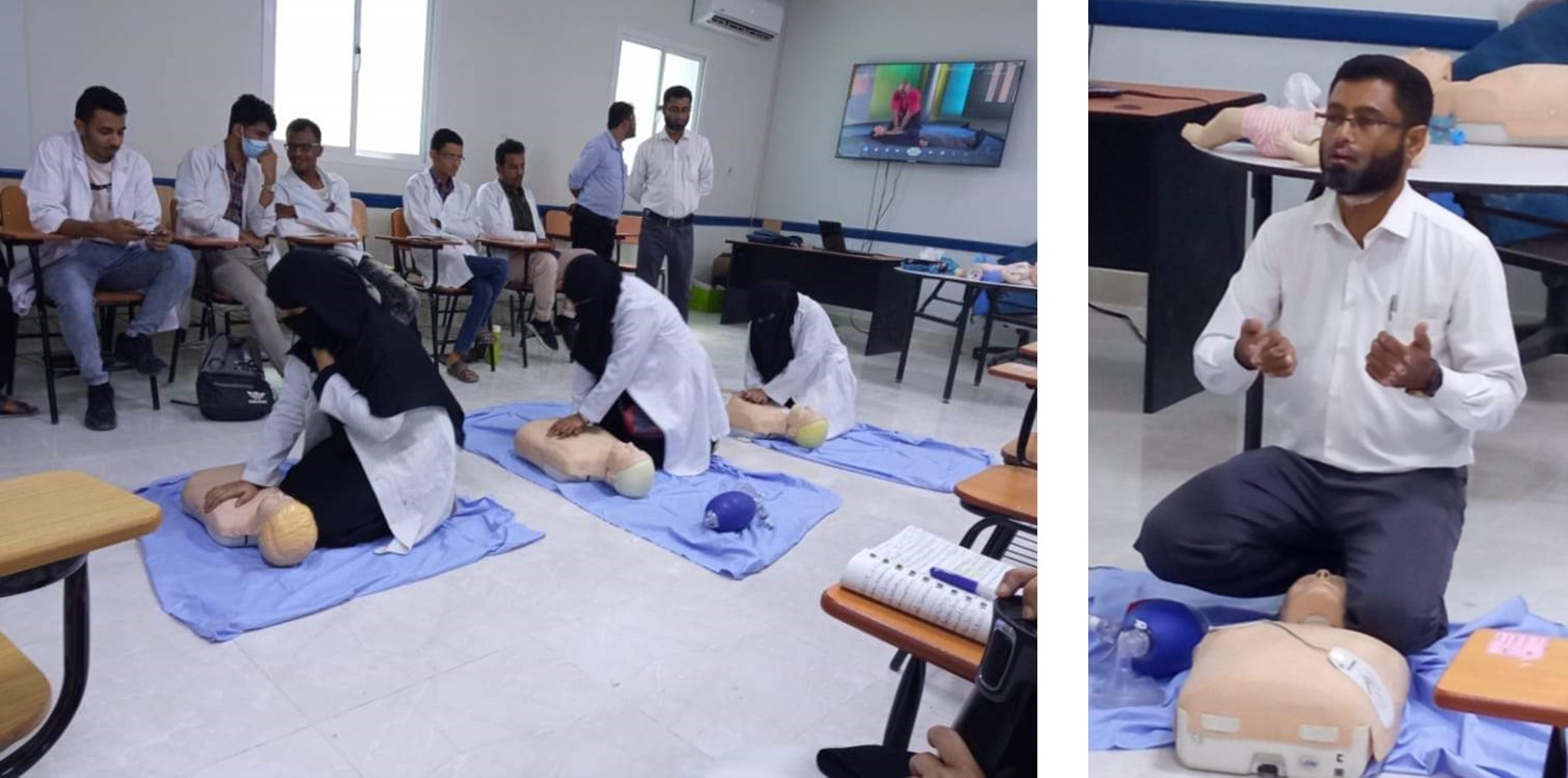
Related links
Enhancing basic and advanced life support skills among Yemen’s health workforce
Texts from the field: life-saving impacts of basic and advanced life support training in Yemen
Texts from the field: life-saving impacts of basic and advanced life support training in Yemen
15 December 2022 – The following text messages were received by WHO staff from trainers and participants within one month of completing basic and advanced life support training in the third quarter of 2022. The training was conducted with the World Bank’s support via the Yemen COVID-19 Response Project.
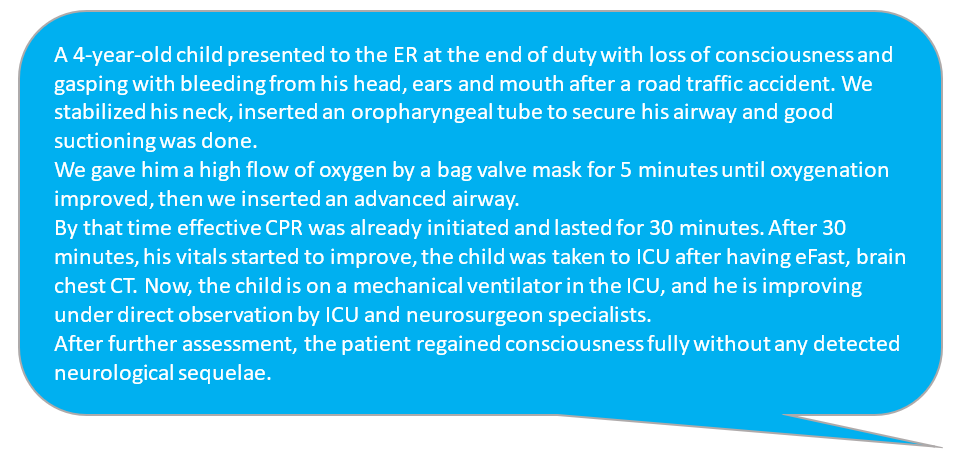 |
 |
 |
 |
Related links
Enhancing basic and advanced life support skills among Yemen’s health workforce
Trainees take immediate proactive steps to cascade life-saving skills
Women at the forefront of Yemen's healthcare response to COVID-19
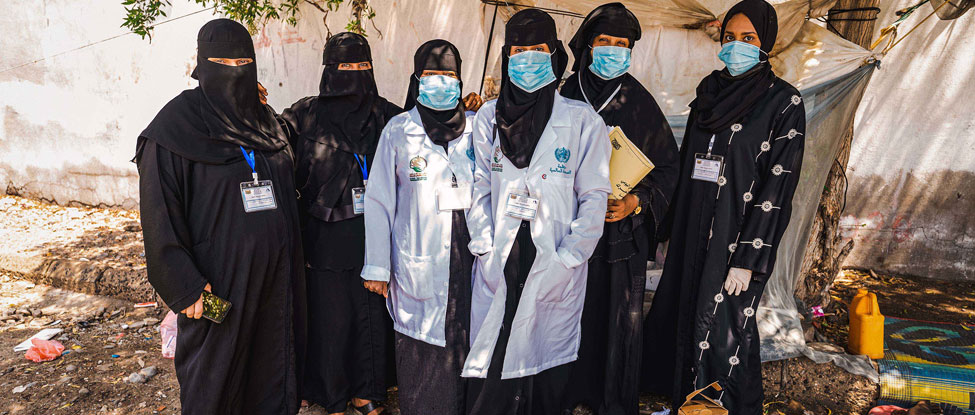
1 December 2022 – Dr Reem Tawfiq Ali Saeed is the director of the Al-Tawahi Health Center on the outskirts of Aden, in South Yemen. During her six months as the center’s director, Dr Saeed has already faced multiple difficulties in managing the needs of both patients and staff.
The support we receive from the World Health Organization and KSrelief [King Salman Humanitarian Aid and Relief Center] is extensive, and includes the provision of vaccines to fight the spread of COVID-19, said Dr Saeed.








